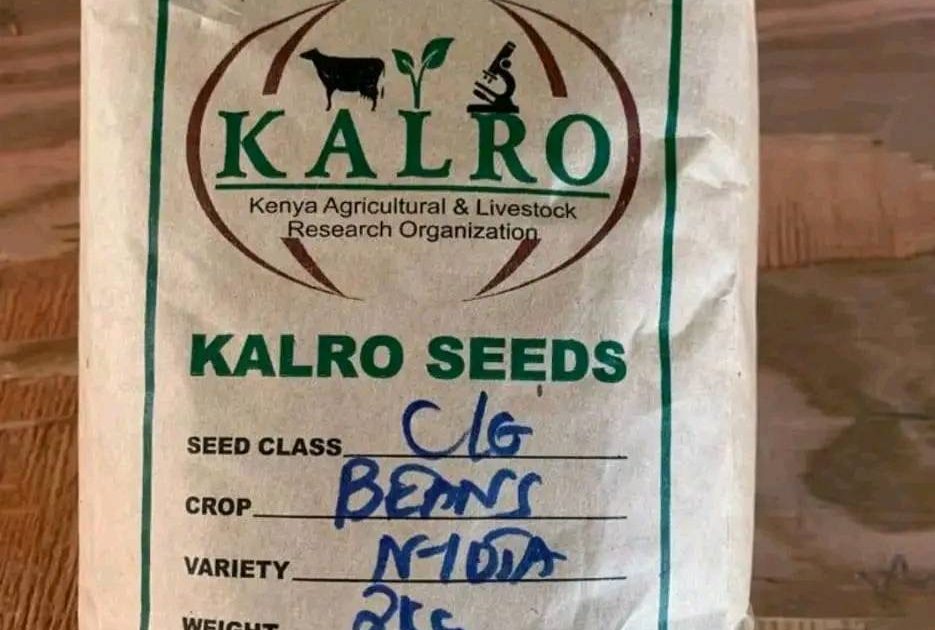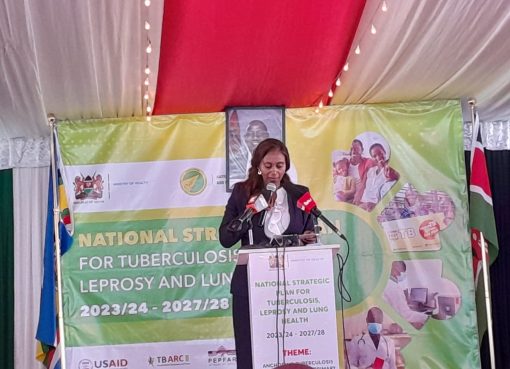The Kenya Agricultural and Livestock Research Organization (KALRO) has decried the continued sale and distribution of counterfeit seeds attributed to low yields in successive planting seasons.
KALRO Director of Crops at Alupe, Dr. Mudavadi Patrick, said that counterfeit seeds are the leading contributor to poor harvests and low crop production by farmers, thus leading to food insecurity occasioned by increased imports to bridge the deficit in the country.
Speaking during the agriculture open-day at KALRO, Alupe, Dr. Mudavadi noted that the Organization has intensified production of certified high-yielding seeds and soil sampling, to give the right advice to farmers on the type and quality of seeds to plant.
“Every year we get complaints of farmers who lament being conned by unscrupulous dealers, who operate multiple agrovet without the right technical know-how, leading to poor yield by most farmers,” Dr. Mudavadi noted.
The Director noted that as a research institution, KALRO has propagated the right seed, based on the soil sampling advice by technicians and drought resistance seed, which can withstand certain climatic conditions.
“Here at KALRO, we are producing the right seeds after soil sampling advice and weather patterns of different areas,” he added.
Mudavadi said that their new bean variety ‘Nyota’, has received huge acceptance among farmers, who have praised the variety for high production in recent days.
“Nyota beans for instance are an example of seeds with fast maturity rate and high yield. which is suitable for most farmers across the country,” Dr. Mudavadi noted.
The bean thrives in both cold dry highlands such as Kiambogo Nakuru and ASALs including Makueni. It is good for industrial processing and is being used in the pre-cooked beans project.
Dr. Mudavadi stated that Nyota matures in 70 days and yields 6-10 90-kilogram (kg) bags per acre, while Angaza takes 80 days and can produce 7-13 bags per acre.
His sentiment was echoed by the Busia Deputy Governor (DG), Arthur Odera, who urged farmers to engage in profitable farming, noting that edible oil is an area of interest for the County of Busia.
“Already I have been informed by the Director that they have propagated over 100,000 oil palm seeds, which is a positive gesture to us as a County in our effort to cut down on the cost of oil importation,” DG Odera said.
While indicating that KALRO intended to open the Mkulima shop in all its 54 centres across the country, Mudavadi revealed that researchers from the Organisation have developed high-yielding, drought- and disease-resistant bean, sweet potato, sunflower, and cassava seed varieties in a bid to encourage alternative crops in the face of reduced maize production.
Other seeds that farmers would access fromMkulima Shop at low prices include green grams, sorghum, millet, cowpeas, maize, rice, wheat, Irish potatoes, and soya beans.
The Research Organization not only focuses on cereals, also one can get fruit tree seedlings, including avocado, mango, macadamia, citrus, pawpaw, tissue Culture bananas, and passion.
The varieties, he said, would be able to withstand drought, pests, and diseases. He, however, urged farmers to only use seeds certified by the Research Organization.
“KALRO provides clean planting materials to farmers. That’s why we are encouraging farmers to get certified seeds from our institutions, to reduce the chances of the diseases being spread,” he said.
However, he said, the Organization is working with other authorities to dismantle the cartels. He added that farmers were also grappling with poor quality seeds, inadequacy of seed for most crops, and, where available, exorbitant prices.
Mudavadi urged farmers from Teso South Sub-county to seek clarification from soil sampling technicians, noting that the Sub-county has the highest soil acidity rate in the County.
“We do soil sampling at Sh. 1,000 and advise farmers on the right seeds and how to reduce the acidity rate for better production,” he added.
By Absalom Namwalo




